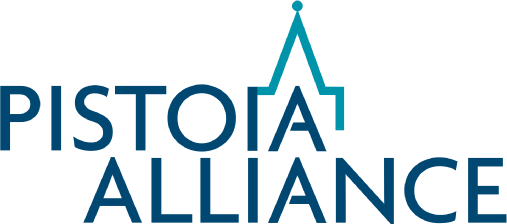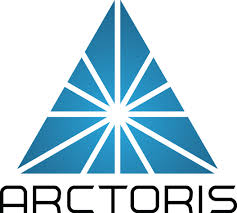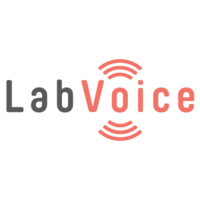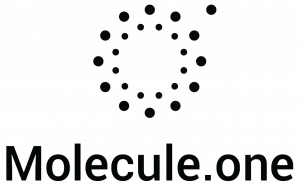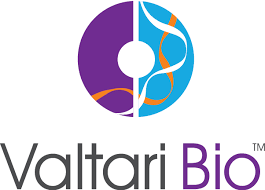Participants used the AI environment created by Elsevier’s Entellect platform in collaborative effort to discover potential treatments.
New York, February 28, 2019 – Rare Disease Day – A unique non-profit and private partnership using a datathon and an AI-powered technology platform has identified new repurposable drug candidates to treat a painful chronic disease affecting about a million people globally and for which there is no current treatment.
Elsevier, the information analytics business specializing in science and health, and The Pistoia Alliance, a global, non-profit alliance working to lower barriers to innovation in life sciences, have announced the results of a joint datathon for Drug Repurposing for Rare Diseases. The datathon, conducted in partnership with non-profit groups, Cures Within Reach and Mission: Cure, involved participants from a range of organizations including life sciences, technology and academia, and has succeeded in identifying new drug candidates for repurposing to treat chronic pancreatitis.
The drug candidates below have passed the expert review panel and are being actively considered by Mission: Cure, with a view to proceeding to patient trials (see Appendices):
- Lacosamide to target Cathepsin B
- Dapsone to target the cystic fibrosis transmembrane conductance regulator
- Rolipram to target Tumor necrosis factor alpha (TNF-a)
- Prednisolone to target Tumor necrosis factor alpha (TNF-a)
“The results of the datathon show that by working in unison, we can achieve breakthroughs that will have a real impact on patients’ lives,” said Dr. Steve Arlington, President, The Pistoia Alliance. “In life sciences today, no one company has the resources to ‘go it alone.’ The datathon was the perfect opportunity to bring all the relevant experts together and pool our knowledge and resources. The results are very promising, and we look forward to seeing these therapies reach those in need.”
The datathon had participants apply AI, machine learning and statistical techniques, using Elsevier’s Entellect platform, to a real-world problem such as drug repurposing. Using Entellect with clinical, pharmaceutical and biochemical data, participants were able to identify suitable drugs to be repositioned to treat chronic pancreatitis. This involved the use of multiple techniques, including target-based drug discovery, examining the perturbance of a drug on a specific gene known to be disease-modifying, and symptomatic-based drug discovery (i.e., examining the perturbance of a drug on the body). Entellect was specifically developed to tackle real-world life science challenges such as this – with the positive results from the datathon validating the need for such purpose-built tech solutions.
“We are very excited about the discoveries made in the Elsevier Entellect/Pistoia Alliance datathon. The problem-solving and teamwork focused on chronic pancreatitis was very exciting. We look forward to taking the promising candidates to the next step where we hope they will help us find effective treatments for this difficult, rare disease,” said Megan Golden, co-founder and co-director, Mission: Cure.
“Within 30 to 60 days of starting the datathon, drug candidates with really good repurposing opportunities came out. In such a short space of time, a small group of people using AI were able to achieve incredible things by showing mechanism of action,” said Bruce Bloom, CEO, Cures Within Reach.
“The goal of the datathon was to identify drug candidates for repurposing by using predictive analytics techniques, and we also wanted to explore best practice in the use of data science,” said Dr. Jabe Wilson, Consulting Director, Text and Data Analytics, Elsevier. “This was the first public trial for our Entellect platform and it’s been a great success on all fronts. I want to thank all our partners and participants for their time and commitment to achieving this positive outcome.”
The project was sponsored by the top 20 pharma companies through The Pistoia Alliance, and all participants had access to a life science-specific AI environment through Elsevier’s Entellect platform; allowing them to seamlessly perform all steps of the machine learning pipeline. Each participant was able to use Entellect to go from exploratory data analysis and data preprocessing, to feature engineering, model building, validation and comparison, and finally result visualization and model deployment. In addition, participants had access to Elsevier datasets, such as Reaxys, PharmaPendium and Pathway Studio, as well as the ability to upload their own datasets into the environment to incorporate them into their analytics workflow. The full results of the datathon are set to be announced at The Pistoia Alliance ‘Centre of Excellence for AI/ML in Life Sciences’ workshop in London on March 12th.
Appendix A
The following drug candidates have been approved by the expert panel and, pending further testing, will hopefully be shared with patients very soon.
| Target |
Candidate drug |
| Cathepsin B is in humans encoded by the CTSB gene. Cathepsin B belongs to a family of lysosomal cysteine proteases and plays an important role in intracellular proteolysis. |
Lacosamide is a medication for the adjunctive treatment of partial-onset seizures and diabetic neuropathic pain. |
| The CFTR gene provides instructions for making a protein called the cystic fibrosis transmembrane conductance regulator. This protein functions as a channel across the membrane of cells that produce mucus, sweat, saliva, tears, and digestive enzymes. |
Dapsone, is an antibiotic commonly used in combination with rifampicin and clofazimine for the treatment of leprosy. It is a second-line medication for the treatment and prevention of pneumocystis pneumonia and for the prevention of toxoplasmosis in those who have poor immune function. |
| Tumor necrosis factor alpha (TNF-a) is a cell signaling protein (cytokine) involved in systemic inflammation. |
Rolipram is a blood-brain-barrier permeable, phosphodiesterase type IV inhibitor that reduces breakdown of cAMP and has various neuroprotective properties including anti-inflammatory actions and inhibitory effects on excitatory amino acid toxicity. |
| Tumor necrosis factor alpha (TNF-a) is a cell signaling protein (cytokine) involved in systemic inflammation. |
Prednisolone is a steroid medication used to treat certain types of allergies, inflammatory conditions, autoimmune disorders and cancers. |
Appendix B
Specific thanks to Bruce Aronow, Cincinnati Children’s Hospital Medical Center Research; and Aleksandar Poleksic University of Northern Iowa, for their outstanding contributions to the project.
The Expert Review Panel was comprised of:
- Anna Gukovskaya – UCLA (University of California)
- Michael Wilschanski – The Hadassah Medical Hospital
- Stephen Pandol – Cedars-Sinai Healthcare
- Andrea Geisz – Boston University
- Anthony Ford-Hutchinson – Ford-Hutchinson Consulting Limited
- Mark Haupt – Ariel Precision Medicine
—
About the Pistoia Alliance
The Pistoia Alliance is a global, not-for-profit members’ organization made up of life science companies, technology and service providers, publishers, and academic groups working to lower barriers to innovation in life science and healthcare R&D. It was conceived in 2007 and incorporated in 2009 by representatives of AstraZeneca, GSK, Novartis and Pfizer who met at a conference in Pistoia, Italy. Its projects transform R&D through pre-competitive collaboration. It overcomes common R&D obstacles by identifying the root causes, developing standards and best practices, sharing pre-competitive data and knowledge, and implementing technology pilots. There are currently 158 member companies; members collaborate on projects that generate significant value for the worldwide life sciences R&D community, using The Pistoia Alliance’s proven framework for open innovation.
About Cures Within Reach
Cures Within Reach improves patient quality and length of life by leveraging the speed, safety and cost-effectiveness of medical repurposing research, driving more treatments to more patients more quickly. Cures Within Reach is the philanthropic leader in drug, device and nutraceutical repurposing research, which has the potential to transform the lives of patients with unsolved diseases by delivering treatments that can be used in the near-term. Why do we care? Learn more about the current state of drug development here!
About Mission: Cure
Mission: Cure was founded in 2017 as a nonprofit organization dedicated to discovering life-altering therapies and bringing them to patients. Mission: Cure aims to demonstrate a faster, more efficient model for curing disease – starting with pediatric and adult chronic and recurrent acute pancreatitis, using an innovative funding model based on improved patient outcomes. Learn more about the pancreatitis quest for a cure here!
About Elsevier
Elsevier is a global information analytics business that helps institutions and professionals advance healthcare, open science and improve performance for the benefit of humanity. Elsevier provides digital solutions and tools in the areas of strategic research management, R&D performance, clinical decision support and professional education, including ScienceDirect, Scopus, SciVal, ClinicalKey and Sherpath. Elsevier publishes over 2,500 digitized journals, including The Lancet and Cell, 38,000 e-book titles and many iconic reference works, including Gray’s Anatomy. Elsevier is part of RELX Group, a global provider of information and analytics for professionals and business customers across industries. www.elsevier.com
Media contact
Christopher Capot, Global Communications
Elsevier
+1 917 704 5174
c.capot@elsevier.com
Image credit:
Alex Kotliarskyi
